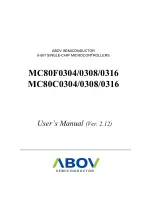
NLB 60E
Technical Data
NomadLink
®
Bridge & Network Controller
A network bridge and dedicated user interface
The NLB 60E NomadLink
®
Bridge & Network Controller serves
as the keystone component in all networked applications for
Lab.gruppen ‘s NomadLink-ready power amplifiers. As a stand-alone
unit, the NLB 60E provides facilities for monitoring amplifier para-
meters, detecting fault conditions, and controlling key functions
(power on/off sequencing and mute) over a proprietary NomadLink
®
network comprising up to 60 amplifiers.
Connecting a PC running DeviceControl software to the NLB 60E
greatly enhances the control and monitoring functions available
through NomadLink
®
. In this configuration, the NLB 60E operates as
a network bridge, relaying amplifier status and operation information
to the host PC over a standard TCP/IP Ethernet link. This Ethernet
connection also transmits control configuration data generated by
the DeviceControl application to the NLB 60E for dissemination to
amplifiers on the NomadLink
®
network. A secure connection feature,
with multiple levels of password protection, is also available within
DeviceControl to prevent unauthorized access to the amplifier net-
work.
Configuring a NomadLink
®
network is quick and straightforward.
A large rack of amplifiers can be networked in minutes simply by
clicking in Cat-5 cables and forming a daisy-chain loop beginning
and ending with the NLB 60E. Cables can be terminated with either
standard RJ45 connectors or impact-resistant Neutrik Ethercon
versions as appropriate (amplifier model dependent). Phantom
power for the amplifier network modules is supplied by the NLB 60E,
allowing all amplifiers to remain online in standby mode with zero
power consumption. To accommodate remote amplifier locations,
NomadLink
®
allows up to 300 meters between any two devices, and
a total closed-loop subnet length of up to 700 meters.
The NLB 60E also incorporates three GPIs (General Purpose Inputs):
one voltage sensing and two contact closure. The GPIs can be con-
figured to respond to remote equipment such as alarm systems and
external power-up sequencers. As an alternative, internal power-up
sequencing is included in the NLB 60E.
The front-panel interface provides convenient access to amplifier
status information and critical control functions. Dedicated power
on and off switches control all amplifiers on the network. Other
functions and comprehensive status information are accessible by
intuitive navigation of a menu tree, with all information clearly visible
on the ultra-bright 16x2 character LED display.
Ethernet to NomadLink
•
®
Bridge –
Provides an Ethernet link
between a PC and a NomadLink
®
network for monitoring and
control of up to 60 NomadLink-ready amplifiers per NLB 60E.
Network power on/off –
•
Dedicated switches control power
on/off for all amplifiers connected to the network.
General Purpose Inputs (GPIs) –
•
Three GPIs each individually
programmable for external triggering of power on/off or mute on
all amplifiers.
Bright LED display –
•
Ultra-bright 16x2 character display for easy
reading in high ambient light.
Keypad user interface –
•
Six momentary keys access amplifier
status information, parameter selection, and data entry.
Fault indication –
•
Bright red LED signals a fault condition,
with detailed information accessible on the 16x2 display or
connected PC.
Phantom powering for network –
•
Amplifiers stay online with
zero power consumption, remaining ready for immediate use.
Front and rear Ethernet ports –
•
Rear port for permanent
connection, with parallel front port for quick maintenance access.
Front-panel password lockout –
•
Prevents unauthorized opera-
tion or reprogramming.




















